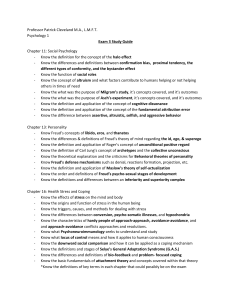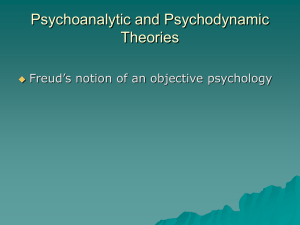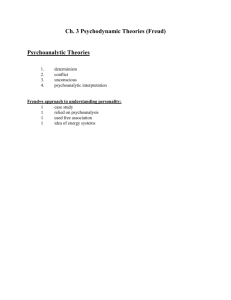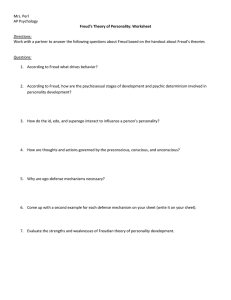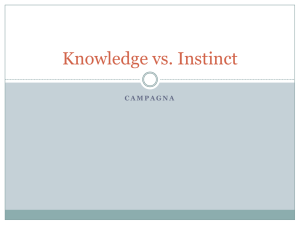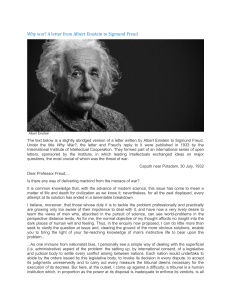Is War Natural? (1) Sociobiology – will do that next session
advertisement
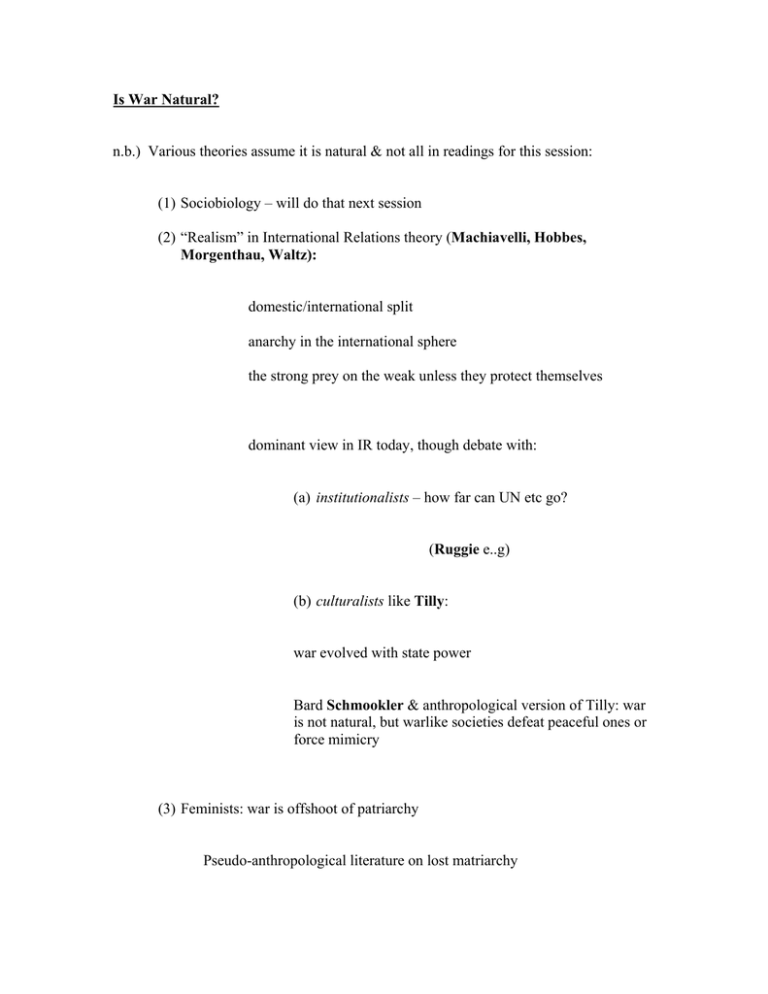
Is War Natural? n.b.) Various theories assume it is natural & not all in readings for this session: (1) Sociobiology – will do that next session (2) “Realism” in International Relations theory (Machiavelli, Hobbes, Morgenthau, Waltz): domestic/international split anarchy in the international sphere the strong prey on the weak unless they protect themselves dominant view in IR today, though debate with: (a) institutionalists – how far can UN etc go? (Ruggie e..g) (b) culturalists like Tilly: war evolved with state power Bard Schmookler & anthropological version of Tilly: war is not natural, but warlike societies defeat peaceful ones or force mimicry (3) Feminists: war is offshoot of patriarchy Pseudo-anthropological literature on lost matriarchy Women seen as intrinsically cooperative They see Freud, IR theory as patriarchal thinking Marilyn French, Beyond Power 1) Freud 1932 context of Nazism in which writing toEinstein later writing (Civilization & Its Discontents) more pessimistic! War “seems to be quite a natural thing, to have a good biological basis and to be scarcely avoidable.”i Shared animal/human nature War & violence = same, instinctual – no difference between the impulse and the institution Hydraulic language to describe human nature (pressures etc) Instinct = dual: eros & death instinct, intertwined (recognizes with William James & Chris Hedges that war not all about destruction) but power of dark side in love with destruction Violence also has had functionality – though that might be ending (war Æ exterminism?) Elitist: elite who “subordinate their instinctual life to the dictatorship of reason.”ii 2) Margaret Mead Who she was, writing 1940 Ambiguity: service to national security state, supported US in Vietnam, yet revered progressive Like Freud, sense that answer lies with “primitives” (in history or culture): There we see essential human nature – problematic assumption! Breaks connection of violence to war; war = institution, invention with rules One (impulse to violence) universal, other (war as institution) not Crucial move Nothing to do with whether a people are aggressive and violent (so much for peace education!) Highlights fact that war = highly rule-bound, not instinctual purging Clincher: societies with no word for, or experience of war Relocates universalism from instinct to make war to cultural processes within it: dehumanization of enemy, purification for killing. 3) William James Harvard psychology professor, writing 1906. Instinctual argument about “innate pugnacity.” “our ancestors have bred pugnacity into our bone and marrow.”iii Evolution central to his argument, as to Freud’s, but hope “war may be a transitory phenomenon in social evolution” iv “pure loot and mastery seem no longer avowable motives.”v Stresses positive, erotic qualities of war, not death instinct Excitement, nobility, manhood, being part of something bigger But war increasingly irrational Functionalism: find function of war, substitute more rational alternative 4) Chris Hedges NY Times war reporter I read as mixture of Freud and James: sees addiction to destruction, but also heroism, nobility, war as place one can be most alive Pessimistic sense wars becoming more & more destructive They’re addictive i Freud, “why War?” p.24. p.24 iii p.66, James iv James, Moral Equivalent of war, p.67 v p.66 ii
